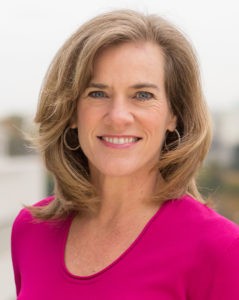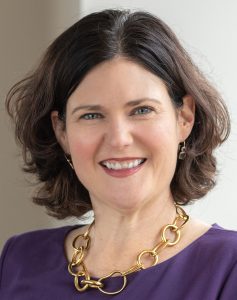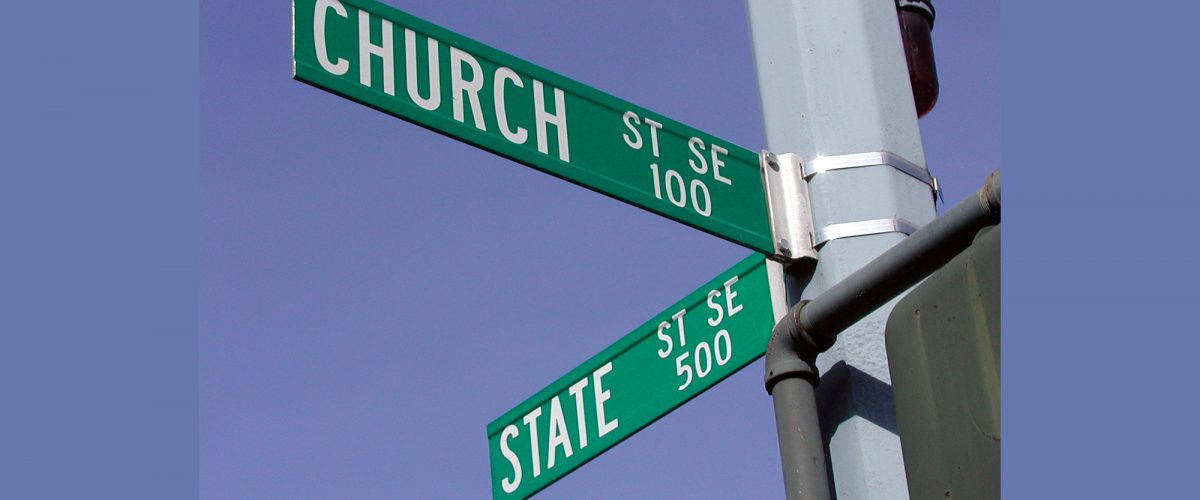The U.S. Supreme Court’s 303 Creative v. Elenis ruling could undermine public accommodation laws historically enacted to end Jim Crow and other discriminatory practices, said Holly Hollman, general counsel for Baptist Joint Committee for Religious Liberty.
“It’s not surprising that history was not far from our minds and the minds of the justices when they addressed this claim, which is the first time we could have a constitutional exception to public accommodation laws,” Hollman said in the latest episode of BJC’s “Respecting Religion” podcast.

Holly Hollman
Hollman and BJC Executive Director Amanda Tyler discussed the 303 Creative ruling allowing a business owner not to serve LGBTQ people, and Groff v. Dejoy, a decision strengthening the rights of employees to receive religious accommodations in the workplace. Both cases were decided in late June.
The 303 Creative case involved Lorie Smith, a Colorado-based evangelical and graphic designer planning to create wedding websites for all but same-sex couples. Justices ruled 6-3 the state’s anti-discrimination ordinances would violate Smith’s free speech rights in the event she were coerced by state law to do business with same-sex couples.
One of several flaws in the June 30 ruling is that it may open the door to discriminatory practices against other categories of people.
One of several flaws in the June 30 ruling is that it may open the door to discriminatory practices against other categories of people by those claiming such interactions violate freedom of speech, Hollman warned.
“If you provide that kind of exception to a business, it’s very hard to say there’s not likewise an exception to other nondiscrimination categories and other beliefs at odds with those protections,” she said. “Anti-discrimination laws, like the one in Colorado, really protect not only against LGBTQ discrimination, but also, importantly, against race and religious discrimination and other kinds of discrimination that are really important to society and that the court has acknowledged is a worthy object for the state.”
Equally troubling, she said, was the presentation of the case as a speech matter rather than a religious liberty claim, such as the Supreme Court’s 2018 Masterpiece Cakeshop v. Colorado Civil Rights Commission ruling allowing a wedding cake maker to deny service to same-sex couples.
“It feels to me that in applying the Free Speech clause in this case — in this way, in this kind of dispute — the court is almost encouraging businesses that have objections to whatever protected categories to frame their businesses as involved in some kind of expression or speech.”
Writing for the majority, Justice Neil Gorsuch initially praises public accommodation laws for securing the civil rights of all Americans, then pivots: “But in this particular case, Colorado does not just seek to ensure the sale of goods or services on equal terms. It seeks to use its law to compel an individual to create speech she does not believe.”
Gorsuch’s argument that Colorado law violates the First Amendment rests partially on his perception of the state’s motives in enacting public accommodation legislation, Tyler said. “And we got a viewpoint of this from the oral argument, where there was this really bizarre and ugly questioning from Justice Gorsuch when he was terming the anti-discrimination law in Colorado to be some kind of reeducation, like comparing it to communist China.”

Amanda Tyler
Hollman added: “He says the state is trying to coopt an individual’s voice for its own purposes, and he also says if we don’t have a rule limiting it, like he does in this case, that an artist’s or a writer’s voice ‘could be conscripted to disseminate the government’s preferred messages.’ So, he really sees himself as saving American democracy from communism in this case.”
The argument doesn’t hold water because the potential victims Gorsuch cites are not adversely affected by accommodation statutes, Tyler said. “Speechwriters and artists and filmmakers and directors, they are not businesses open to the public, so it’s really confusing for him to use these hypotheticals here.”
Justice Sonia Sotomayor responded in the minority opinion with a warning: “Although the consequences of today’s decision might be most pressing for the LGBT community, the decision’s logic cannot be limited to discrimination on the basis of sexual orientation or gender identity. The decision threatens to balkanize the market and to allow the exclusion of other groups from many services. A website designer could equally refuse to create a wedding website for an interracial couple, for example.”
“This just points to the deeply regressive nature of this opinion and also the potentially far-reaching implications,” Tyler said. Yet Sotomayor’s strongly worded dissent may be a signal “that this case does not always need to stand, and it is up to the people to say, ‘We, the people, are the Constitution. We have a decision to make about free life and democracy.’”
Related articles:
Supreme Court says evangelical web designer doesn’t have to serve same-sex couples
Supreme Court hears case of wedding website designer who won’t serve same-sex couples
High court unanimously seeks a compromise on religious accommodation in the workplace


